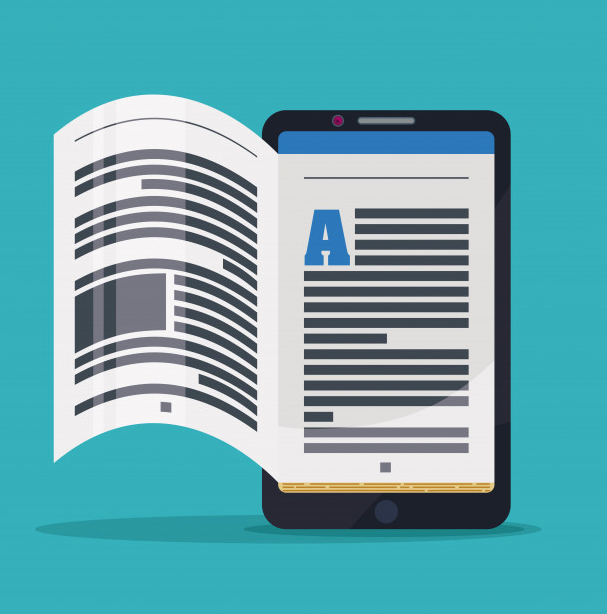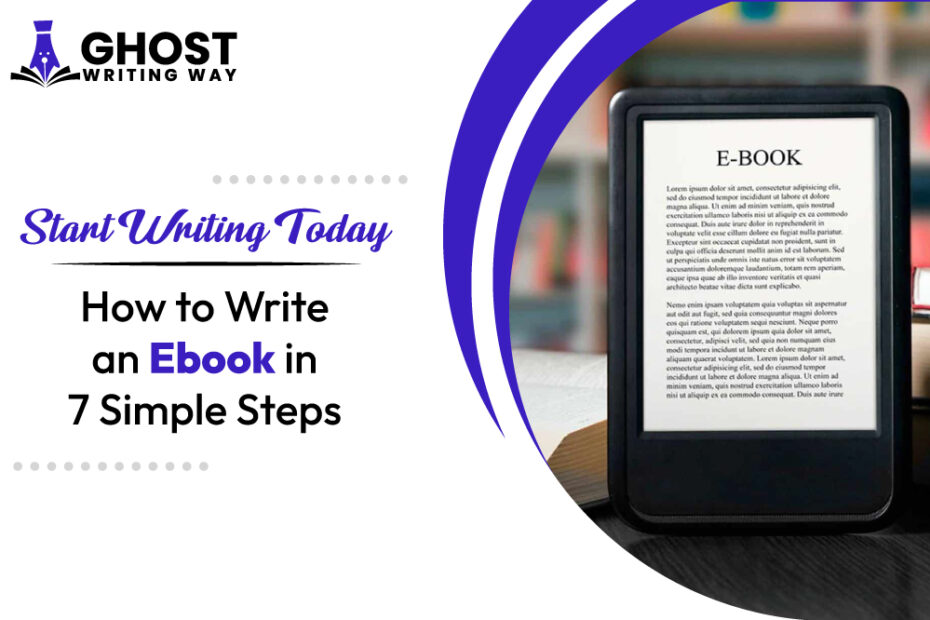We offer children’s ebook writing services that bring imaginations to life through captivating storytelling. Our professional team understands the importance of crafting narratives that resonate with young readers. Write an ebook, creates literature tailored to their curious minds.
Ebook Writing Agency

Our agency boasts skilled ghost book writers who master storytelling with knowledge of child psychology and engagement techniques. They bring your vision to life on the page, captivating young readers globally with inspiring narratives.
How to Write an eBook?

Creating an ebook is an exciting journey and getting started begins with understanding two key factors: your audience and your topic.
Understanding Your Audience
Spend some time defining your target audience before you start writing an ebook. Who do they represent? What are their needs, interests, and areas of discomfort? Knowing your readers will help you choose the right content and make sure you write an ebook to appeal to them.
Selecting an Engaging Topic
You should select a topic that captures the attention of your audience now that you are aware of who they are. Come up with a list of concepts that address their needs or solve their issues. Your subject matter should be interesting. Pertinent and something that people want to learn more about.
Guidelines for Content Organization and Outlining
Outline your ebook to provide organization and consistency once you have decided on a topic. Make a list of the primary topics you want to cover first. Then group them into chapters or sections. Make use of subheadings to make it easier for readers to navigate your content and divide complex topics into comprehensible sections.
Keep Your Readers Engaged
To keep your readers engaged ensure your content flows logically from one section to the next. Use clear and concise language and incorporate visuals or examples to illustrate your points. By organizing your content effectively, you will create an ebook that’s easy to navigate and keeps your audience eager to learn more.
How to Start an eBook?
Let’s begin the exciting journey of starting your ebook project by taking the first steps and setting a solid foundation.
Conducting research and generating new ideas
Start by immersing yourself in the world of your chosen subject. Conduct an extensive study to find insights, facts and inspiration. To gain a deeper knowledge, read books, articles, internet resources, and speak with professionals. Allow yourself to be creative as you absorb information and generate ideas that stimulate your interest. Consider several views, perspectives and distinctive approaches that will set your selling ebooks apart.
Setting Realistic Goals and Creating a Writing Schedule
Now that you have some ideas flowing it’s important to establish specific attainable goals for your ebook project. Decide what you want to achieve, be it enlightening your audience, imparting personal knowledge, or offering useful solutions. Divide your objectives into more manageable benchmarks so you can keep track of your progress. Next, create write an ebook that works with your commitments and lifestyle. Set up regular writing times and adhere to them. Consider writing a children’s book to be just as important as any other assignment on your to-do list. To bring your ebook to life, you’ll stay motivated, focused, and on track by creating a writing plan and setting goals.
How Long Should an eBook Be?

Let’s explore the elements that influence ebook length and how to choose the ideal size for your endeavor.
Factors Influencing Ebook Length
Genre: An ebook’s length varies according to its genre. For example, fiction novels can range in length depending on the subject. write an ebook that is non-fiction and can contain a range of word counts.
Target Audience: Young adult readers might prefer shorter ebooks with concise storytelling. Academic readers might expect in-depth analysis and extensive content.
Content In-depth: The intricacy of your subject and the breadth of knowledge you want to share will also affect how to write an ebook. Fewer words might be needed for a broad summary but more words might be needed for a thorough investigation.
Ebook Ideas:
In order to spark your imagination and provide you with useful ideas for your next digital masterpiece, let’s explore a wide variety of ebook ideas in different genres and niches.
Explore Ebook Ideas Across Different Genres and Niches
Fiction: Explore the world of fiction through e-books. Investigate literary fiction, science fiction, fantasy, romance and mystery genres. write an ebook, stories with engrossing characters, complex narratives and gripping endings to keep readers turning pages.
Non-Fiction: Give non-fiction ebooks a chance to showcase your knowledge and skills. Think about subjects like history, cooking, travel, wellness, business, finance, self-help, and personal development. Provide your audience with insightful analysis, doable tactics, and helpful guidance to empower and inform them.
eBook Best Practices:

Let’s explore crucial pointers and industry best practices to improve your book writing services. Formatting and writing abilities so that your digital masterpiece enthralls and connects with your audience.
How to Write Strong Openings:
Engage Your Audience: Start off strong by establishing the tone and offering value in your introduction to captivate your audience.
Determine your pain points: To create relevance and spark interest, start by addressing the reader’s problems or areas of interest.
Preview Text: To entice readers to explore further, give a brief synopsis of what they can expect in the ebook.
Images That Attract Readers
Use the Images Carefully: Add illustrations, charts, infographics, or other pertinent images to improve comprehension and engagement.
Break-Up Text: For better readability and to keep readers interested, break up lengthy paragraphs with images.
Ensure Excellence: For visual elements that successfully complement your content, use crisp, high-resolution photos and graphics.
Optimizing for readability
Prioritize Clarity: Use clear and concise language to effectively convey your message. Avoid using jargon or complex terminology.
Utilize Formatting: Use formatting techniques like bullet points, subheadings and bold text to highlight important points and improve readability.
Test readability: write an ebook on various devices and screen sizes to ensure readability and adjust the formatting as needed.
What Type of eBook Can I Write?

Take a look at the various types of writing ebooks each with their own set of strengths and audiences.
Types of Ebooks:
Guides: Contain step-by-step instructions or advice on a specific subject providing practical solutions and actionable insights.
Tutorial: walk readers through a particular process or skill offering hands-on guidance and detailed instructions.
Case Studies: examine real-world examples of successful strategies, problem-solving approaches and lessons learned.
Fiction: covers genres like romance, mystery, fantasy and science fiction offering immersive storytelling experiences.
Strengths and Potential Audiences
- Guides offer comprehensive info and advice, ideal for entrepreneurs, professionals, and individuals seeking practical guidance.
- Tutorials suit learners and enthusiasts aiming to acquire new skills or deepen expertise.
- Case studies are valuable for business marketers and professionals seeking real-world insights.
- Fiction appeals to diverse age groups providing entertainment and emotional engagement.
What Type of eBook Sell the Most?

Let’s take a look at the most popular ebook genres and topics to write and sell ebooks of what readers want and the lucrative opportunities available in the digital market.
Explore popular ebook genres and topics:
Advice on personal development, health, finance, and career.
Timeless and modern stories of romance, excitement, and love.
Factors Driving Demand and Opportunities
Market trends and reader preferences drive demand for emerging genres.
Understanding target audience preferences is crucial. Niche markets offer opportunities with less competition for unique topics and genres.




